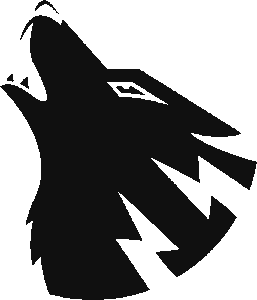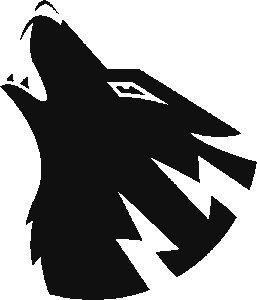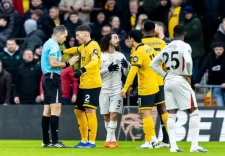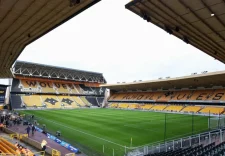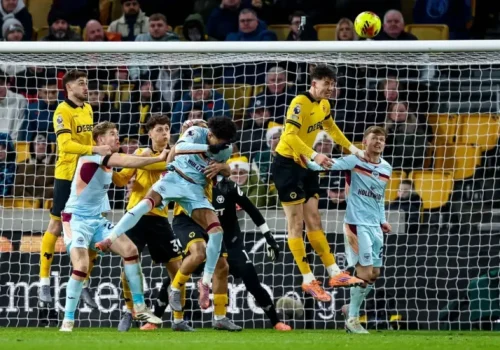When they returned to the Premier League in 2018, Wolverhampton Wanderers were once seen as one of the league’s most exciting and ambitious clubs. Fast forward to today, and that reputation is a distant memory. Each season since finishing 10th in 21/22 (which was seen as a disappointment at the time) has seen a familiar and frustrating pattern: Poor starts, managerial sackings, panic spending in January, and just enough to scrape survival. After this weekend’s result against Newcastle, the club, for the first time in its history, has lost its opening four league games, a damning reflection of a club stuck in a cycle of decline and unable to replace the star players and captains who once defined it.
2021/22: The Peak Before the Slide
The 2021/22 season was the last time that Wolves looked relatively secure. They finished 10th in the Premier League, giving fans hope of building upwards towards the European spots again. However, the warning signs were already evident: goals were drying up, with Raul Jiménez the top scorer, having scored just six goals. The backbone of the team, midfielders, big names, and senior leadership were all still around then, but cracks in depth were becoming noticeable. Without reinforcements, when injuries or dips in form came, Wolves lacked the firepower to compensate, and they only managed to score 38 goals, outscoring only the three relegated teams.
2022/23: Early Season Stutter, Managerial Upheaval
In the 2022/23 season, Wolves began poorly, winning just one of their opening ten league games. They looked short of an attacking spark, chances created were few, and clinical finishes were even fewer, with just three goals scored in those ten games. Goals were few and far between due to a lack of Premier League-ready signings. Hwang Hee-chan, Gonçalo Guedes (who was immediately loaned out in January), and Diego Costa were brought in. Injuries to both Jiménez and new signing Saša Kalajdžić didn’t help matters. As the mounting pressure became unbearable, Bruno Lage was sacked in early October. He was replaced by Julien Lopetegui in November, who arrived with the task of dragging Wolves from the bottom of the table.
In January 2023, Mario Lemina, Matheus Cunha, Craig Dawson, Pablo Sarabia, and João Gomes were all brought in. Though he ultimately kept the club afloat, the pattern was set: a weak start, trouble by Autumn, a change of manager, bringing in new players in January, then scrambling to survive. Wolves finished 13th in the League.
2023/2024: Leaders Lost, Problems Multiply
The following campaign deepened the issues at the club. Wolves had lost or sold numerous star players, including Rúben Neves, Diego Costa, João Moutinho, Adama Traoré, Conor Coady, Nathan Collins, Raúl Jiménez, and Matheus Nunes. There were incomings; however, Matheus Cunha (signing permanently), Jean-Ricner Bellegarde, Santiago Bueno, and Matt Doherty were all brought in. This caused Lopetegui to quit just days before the season ended. He has since given an interview stating:
“But for different things, the club cannot do this kind of project,” he said. “When we started pre-season, they told me that it’s impossible to develop this project. And we decided to part ways.”
Gary O’Neil was brought in just before the first game of the season. Despite being written off by most, he managed to steady the ship and guide Wolves to a 14th place finish, well clear of relegation with some memorable moments along the way such as the 2-1 victory over Manchester City, doubles over both Tottenham Hotspur and Chelsea, as well and a FA Cup quarter final run which included a 2-0 win over local rival West Bromwich Albion.
The campaign still highlighted major issues, however. Wolves remained blunt in attack, scoring just 50 goals, with Cunha and Neto taking much of the creative burden. Though O’Neil earned credit this season, Wolves were again a club surviving rather than building, and cracks in the model of selling stars without adequate replacements started to grow wider.
2024/25: The Near Miss and the Turnaround
The 2024/25 campaign was one of the most turbulent in recent Wolves history. The season began horrendously, with the club failing to win any of the first ten matches and picking up only nine points from the first 16 games, leaving them 19th in the table and in serious trouble of relegation. Another captain, Max Kilman, left as well as star man Pedro Neto. André, Tommy Doyle, Jørgen Strand Larsen, Sam Johnstone, and Rodrigo Gomes were brought in.
After a dismal run in which Wolves conceded 12 goals in 4 defeats, O’Neil was sacked in December 2024. Former Porto boss Vítor Pereira was brought in immediately, and Wolves improved significantly, securing 31 points from the next 18 league games, including a historic six-match winning streak that helped secure safety with five games to go. However, it would ultimately be another slip down the table, as Wolves finished 16th.
2025/25 so far: A New Low, but Early Signs of the Same Old Problems
Going into the current season, Wolves fans were worried; there was a large number of outgoings, 14 players in total, including Cunha and Rayan Aït-Nouri. Several high earners, such as Nélson Semedo (another captain who has departed), Pablo Sarabia, and Fábio Silva, also left. The club did make a number of signings; Strand Larsen was brought in permanently. New signings were made in the form of Fer López, Jhon Arias, David Møller Wolfe, Jackson Tchatchoua, Ladislav Krejčí and Tolu Arokodare.
Unfortunately, this season has also started disastrously. Wolves have lost their first four league matches for the first time in their 148-year history. The goal scoring has dropped once again, with just two goals scored in four matches and nine conceded. Strand Larsen is injured with a currently unknown return date, leaving Hawng Hee-Chan, who has scored just three times in the last two seasons and new signing Arokodare to fill the void of Cunha and Strand Larsen’s combined 29 goals from last season. The loss of strong, Premier League-proven, influential players without adequate replacements already seems to be hurting the team’s cohesion and goal threat, something many fans have been worried about for the past several years.
Wolves’ decline since the 2021/22 season is no longer just a blip or a difficult patch; it’s a full cycle of mismanagement, short-term fixes, and a steady erosion of the squad’s quality and leadership. Each year has followed the same script: sell key players without having proper replacements lined up, stumble out of the blocks, sack the manager, gamble in January, and scrape survival. The difference is now history has been made for the wrong reasons, with Wolves losing the first four games of the season and being one of two teams in the pyramid with zero points.
Supporters can see the pattern clearly, and unless the Molineux hierarchy acts with ambition and clarity, Wolves risk undoing all the progress made since the promotion in 2018. To move forward, they must break free from this self-destructive cycle: invest in proven Premier League quality, stop the revolving door of captains, and give the manager time and backing to implement a vision. Otherwise, the Premier League status that once looked secure could soon be lost. Wolves as a club are at a crossroads – either learn from these mistakes of the past four years or continue to decline, and the top-flight status will be gone.
Written by Luke Fletcher
